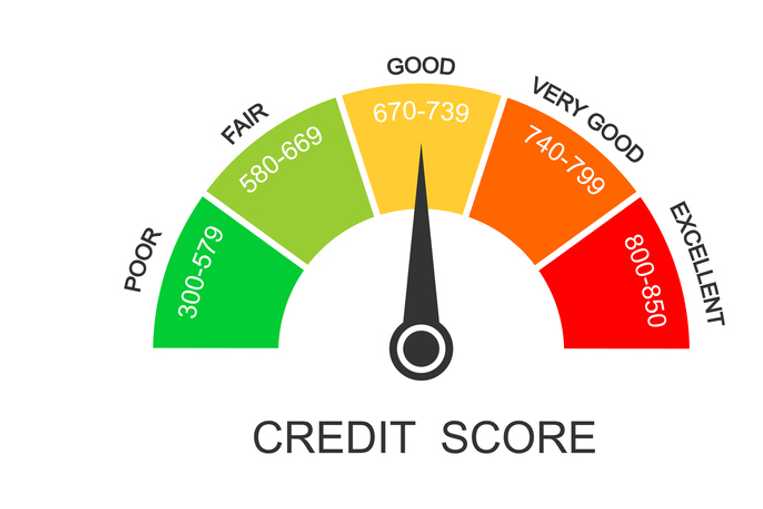In the modern financial landscape, understanding how credit scores function is crucial for effective personal financial management. This guide aims to demystify the concept, offering insight into the mechanics behind these vital numeric assessments.
Credit scores, the numerical representations of an individual’s creditworthiness, play a pivotal role in determining the terms under which credit is offered. Grasping how these evaluations are compiled can empower individuals to enhance their financial health.
Introduction to Credit Scores
Credit scores serve as the backbone of financial credibility in the contemporary lending environment. These scores are calculated based on an individual’s credit history, serving as a numerical summary of their financial reliability.
A higher score indicates better credit health, influencing lenders’ decisions on whether to extend credit and on what terms. This vital figure can affect the interest rates on loans, credit card approvals, and even rental applications.
The most common models for calculating these scores are FICO and VantageScore, each considering a range of factors from an individual’s credit report to generate a score between 300 and 850.
Understanding the factors that influence your score is the first step towards managing and improving your credit health.
Key Components of Credit Scores
Several key components influence the calculation of a credit score. The most significant of these include payment history, credit utilization, length of credit history, new credit inquiries, and types of credit used.
Payment history, reflecting whether you’ve made your payments on time, is the most crucial factor. This aspect underscores the importance of consistently making payments on time.
Credit utilization ratio – how much of your available credit you’re using – is another critical factor, indicating your reliance on credit and affecting your score accordingly.
Improving Your Credit Score
Improving your credit score is a gradual process, but understanding the factors at play can make it more manageable. Regularly checking your credit report for errors and paying your bills on time are foundational steps.
Keeping your credit utilization low and avoiding opening several new credit accounts in a short period can also help protect and improve your credit standing.
Remember, while some actions can have immediate benefits, building a strong credit history is a long-term endeavor.
Engaging with your credit report regularly and understanding the impact of your financial decisions can lead to significant improvements in your score over time.
Financial education is a powerful tool in managing and improving your creditworthiness.
Consequences of Low Credit Scores
A low credit score can severely restrict your financial flexibility. Higher interest rates on loans and credit cards, increased insurance premiums, and difficulty securing housing are just a few of the potential repercussions.
Moreover, some employers consider credit scores in their hiring decisions, viewing a high score as indicative of reliability and responsibility.
It’s evident that the implications of a low score extend beyond just financial aspects, impacting various facets of one’s life and underlining the importance of maintaining a healthy credit score.
Navigating Credit Reports
Understanding your credit report is essential to managing and improving your credit score. These reports, which detail your credit history, are maintained by major credit bureaus and can be obtained for free annually.
Reviewing your credit report regularly allows you to catch and dispute any inaccuracies or fraudulent activities, ensuring your credit score accurately reflects your credit behavior.
Being proactive in this regard can prevent minor issues from turning into significant obstacles on your path to financial well-being.
The Role of Credit Scoring in Financial Opportunities
A healthy credit score opens up a world of financial opportunities, including access to the best loan rates, credit cards, and other financial products. It’s a key factor that lenders use to evaluate your loan and credit applications.
By understanding how your credit score is calculated and what you can do to improve it, you’ll be better positioned to leverage these opportunities for your financial advancement.
Maintaining a good credit score is akin to maintaining a healthy financial lifestyle — it requires consistency, awareness, and proactive management of your finances.
Final Thoughts on Credit Scores
In conclusion, credit scores are an essential component of your financial identity, influencing a wide array of opportunities and terms available to you in the financial world.
By demystifying how these scores work and taking active steps towards managing your credit health, you can significantly enhance your financial well-being and access better opportunities.
Remember, knowledge is power, especially when it comes to managing your credit score. With the proper understanding and approach, you can ensure that your credit score works for you, not against you.
Successfully navigating the complexities of credit scores requires an understanding of their importance, the factors that affect them, and the strategies to improve them. Armed with this knowledge, individuals can secure a healthy financial future, underscored by a robust credit score.


